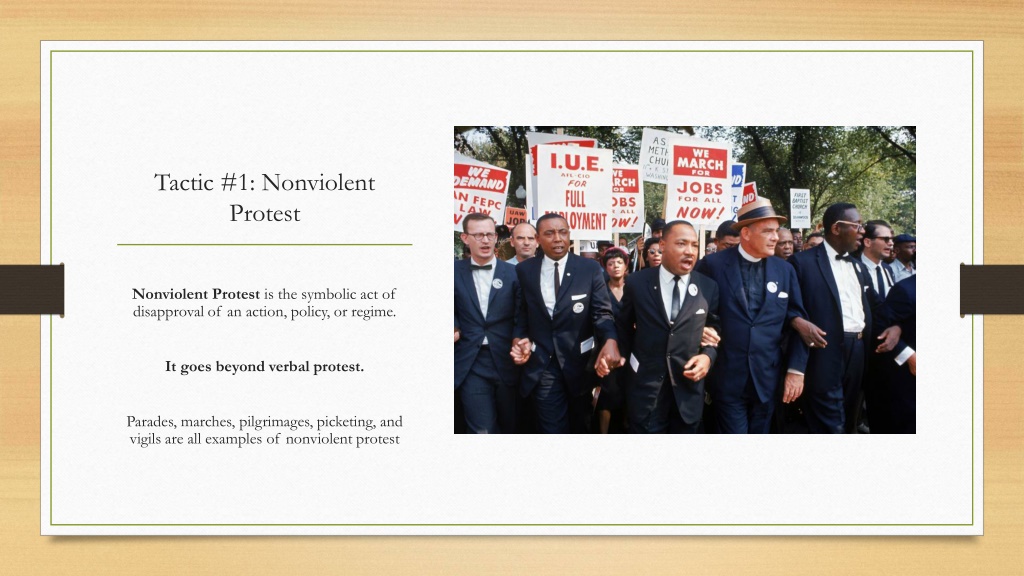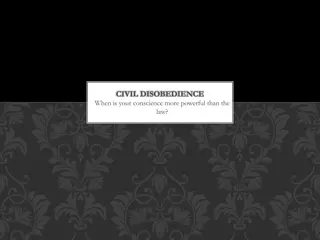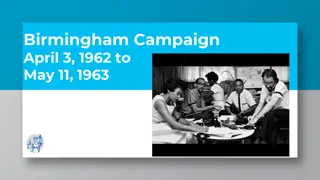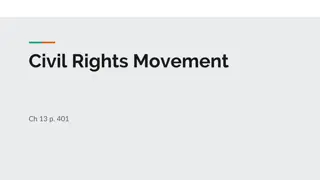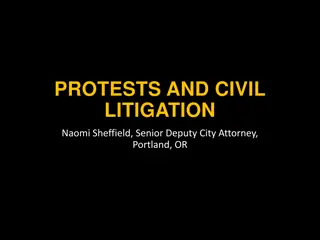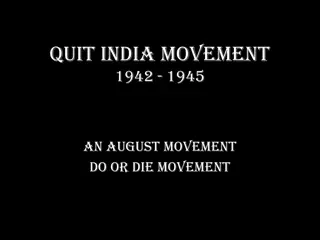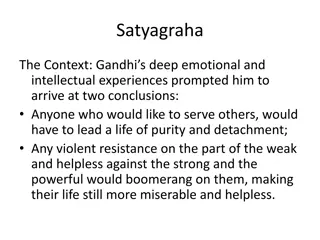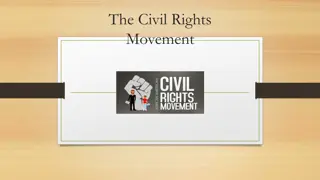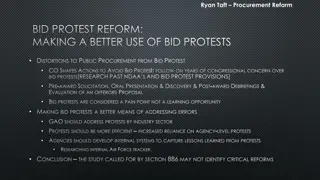Strategies for Peaceful Resistance: Nonviolent Protests and Civil Disobedience
Explore tactics like nonviolent protest, noncooperation, nonviolent intervention, and legal action as peaceful ways to challenge actions, policies, or regimes. Learn about Gandhi's principles of civil disobedience and how to effectively engage in acts of resistance.
Uploaded on Sep 20, 2024 | 0 Views
Download Presentation

Please find below an Image/Link to download the presentation.
The content on the website is provided AS IS for your information and personal use only. It may not be sold, licensed, or shared on other websites without obtaining consent from the author. Download presentation by click this link. If you encounter any issues during the download, it is possible that the publisher has removed the file from their server.
E N D
Presentation Transcript
Tactic #1: Nonviolent Protest Nonviolent Protest is the symbolic act of disapproval of an action, policy, or regime. It goes beyond verbal protest. Parades, marches, pilgrimages, picketing, and vigils are all examples of nonviolent protest
Tactic #2: Noncooperation Noncooperation is a refusal to economically, socially, or politically cooperate. Boycotts, walkouts, and strikes are all examples of noncooperation.
Tactic #3: Nonviolent Intervention Nonviolent Intervention is active, deliberate intervention or failure to observe laws or social customs. Civil Disobedience is an important example. Civil Disobedience is deliberately breaking a law they consider unjust, such as a sit in.
Tactic #4: Litigation, Lobbying, and More Litigation is the process of taking legal action. Lobbying is seeking to influence a politician or public official on an issue. Intimidation, violence, and persuasion are also tactics to use to show the importance of your plan.
Gandhis Rules of Civil Disobedience Harbor no anger, but suffer the anger of the opponent. Do not submit to any order given in anger, even though severe punishment is threatened for disobeying. Refrain from insults and swearing. Protect opponents from insult or attack, even at the risk of life. Do not resist arrest nor the attachment of property, unless holding property as a trustee. Refuse to surrender any property held in trust at the risk of your life. If taken prisoner, behave in an exemplary manner. As a member of the satyagraha (civil disobedience unit), obey the orders leaders and resign from the unit in the event of serious disagreement.
